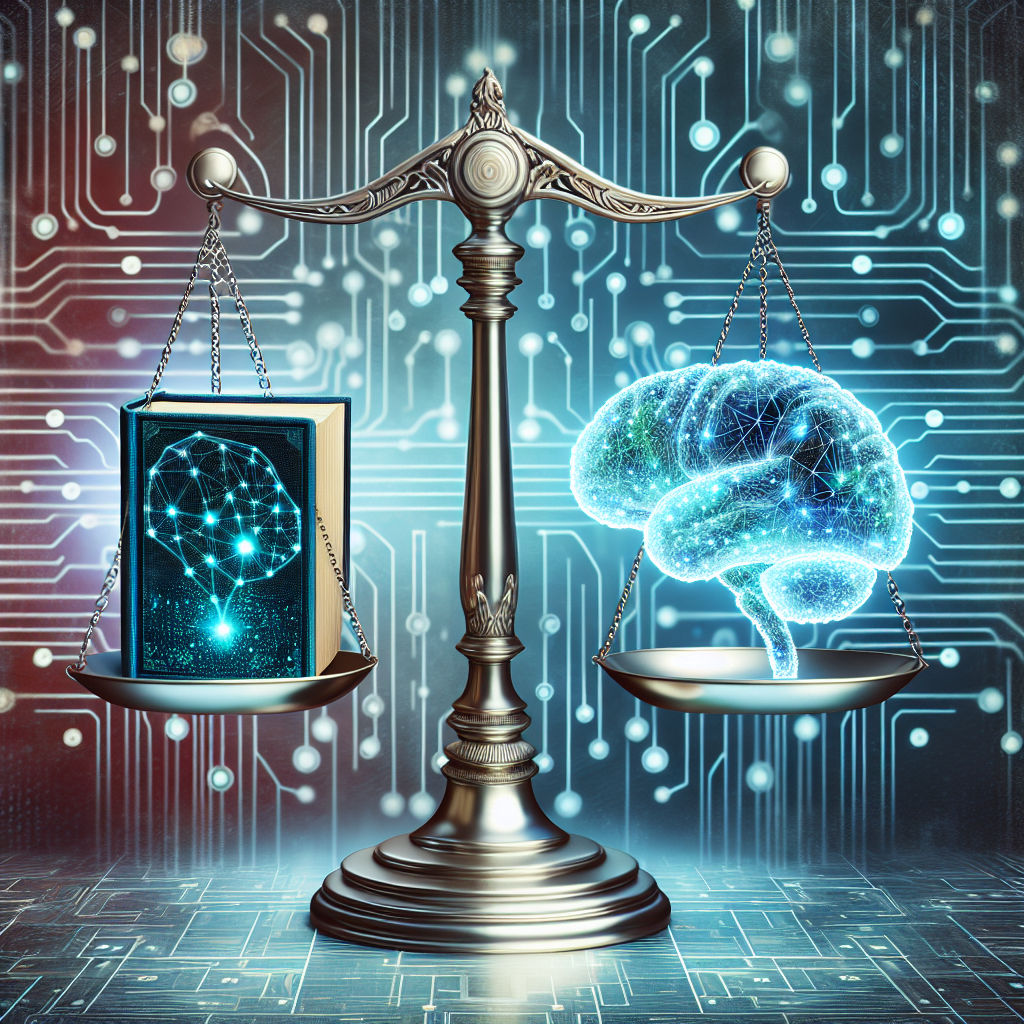The Ethical Implications of AI in Law
Artificial intelligence (AI) has become an integral part of many industries, including the legal sector. AI technologies, such as machine learning and natural language processing, are increasingly being used to streamline processes, improve efficiency, and provide insights that were previously unattainable. While AI has the potential to revolutionize the legal profession, it also raises important ethical considerations that must be addressed.
One of the key ethical implications of AI in law is the potential for bias in decision-making. AI algorithms are only as good as the data they are trained on, and if the data used to train an AI system is biased, it can lead to biased outcomes. For example, if an AI system is trained on historical data that is skewed towards a particular demographic group, it may perpetuate existing biases in the legal system. This can have serious consequences, particularly in areas such as criminal justice where decisions can have a significant impact on people’s lives.
Another ethical concern is the lack of transparency in AI systems. Many AI algorithms are complex and opaque, making it difficult to understand how they arrive at their conclusions. This lack of transparency can make it challenging to hold AI systems accountable for their decisions and can undermine trust in the legal system. Additionally, the use of AI in law raises questions about the role of human judgment and the extent to which decisions should be delegated to machines.
In addition to bias and transparency, there are also concerns about the impact of AI on the legal profession itself. As AI technologies become more sophisticated, there is a fear that they could replace human lawyers, leading to job losses and potentially reducing access to justice. There are also questions about the ethical responsibilities of lawyers who use AI tools, particularly in cases where AI systems make errors or produce unintended consequences.
Despite these ethical concerns, there are also potential benefits to the use of AI in law. AI technologies have the potential to improve access to justice, reduce costs, and increase efficiency. For example, AI systems can help automate routine legal tasks, freeing up lawyers to focus on more complex and high-value work. AI can also help legal professionals analyze vast amounts of data quickly and accurately, enabling them to make more informed decisions.
To address the ethical implications of AI in law, it is essential for legal professionals, policymakers, and technologists to work together to develop ethical guidelines and best practices for the use of AI in the legal sector. This may include implementing measures to mitigate bias in AI systems, increasing transparency in AI algorithms, and ensuring that human oversight is maintained in decision-making processes.
Frequently Asked Questions (FAQs)
Q: What are some examples of AI applications in the legal sector?
A: Some common examples of AI applications in the legal sector include contract analysis, legal research, document review, and predictive analytics. AI technologies can help legal professionals streamline processes, improve efficiency, and provide insights that were previously unattainable.
Q: How can AI help improve access to justice?
A: AI technologies have the potential to improve access to justice by reducing costs, increasing efficiency, and automating routine legal tasks. For example, AI systems can help legal professionals analyze vast amounts of data quickly and accurately, enabling them to make more informed decisions and provide better services to their clients.
Q: What are some ethical concerns associated with the use of AI in law?
A: Some ethical concerns associated with the use of AI in law include bias in decision-making, lack of transparency in AI systems, and the potential impact on the legal profession. It is essential for legal professionals, policymakers, and technologists to address these concerns and develop ethical guidelines for the use of AI in the legal sector.
Q: How can bias in AI systems be mitigated?
A: Bias in AI systems can be mitigated through careful data selection, regular monitoring and auditing of AI algorithms, and the implementation of fairness and accountability measures. It is essential for developers and users of AI systems to be aware of the potential for bias and take steps to address it.
Q: What role should human judgment play in AI-assisted decision-making?
A: Human judgment should play a crucial role in AI-assisted decision-making. While AI technologies can provide valuable insights and automate routine tasks, it is essential for human lawyers to exercise judgment, oversee AI systems, and ensure that decisions are fair, transparent, and in line with ethical standards.
In conclusion, the use of AI in law has the potential to transform the legal profession, but it also raises important ethical considerations that must be addressed. By working together to develop ethical guidelines and best practices for the use of AI in the legal sector, we can harness the benefits of AI while minimizing its potential risks. It is crucial for legal professionals, policymakers, and technologists to collaborate and ensure that AI technologies are used responsibly and ethically in the legal sector.

